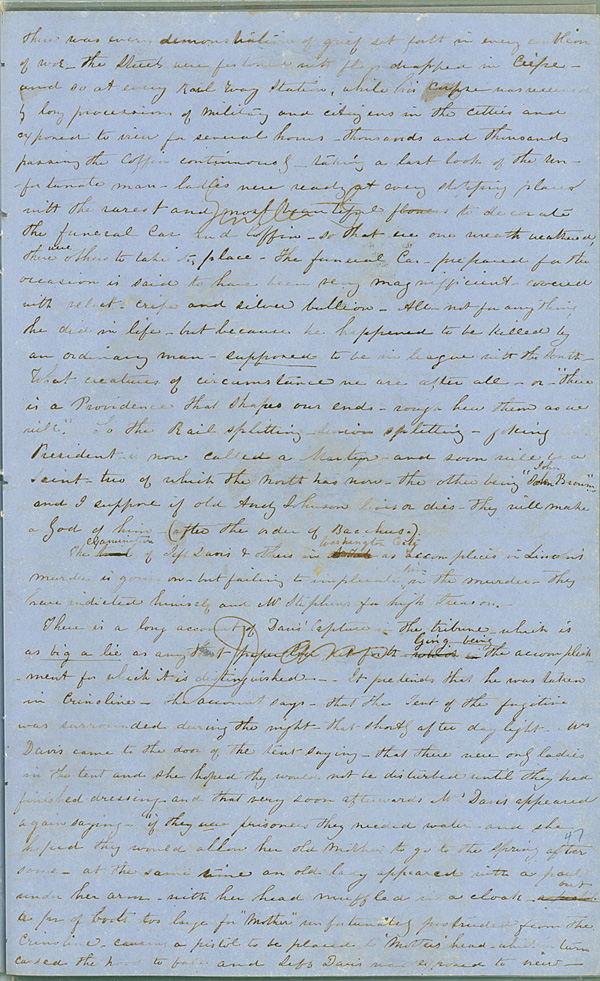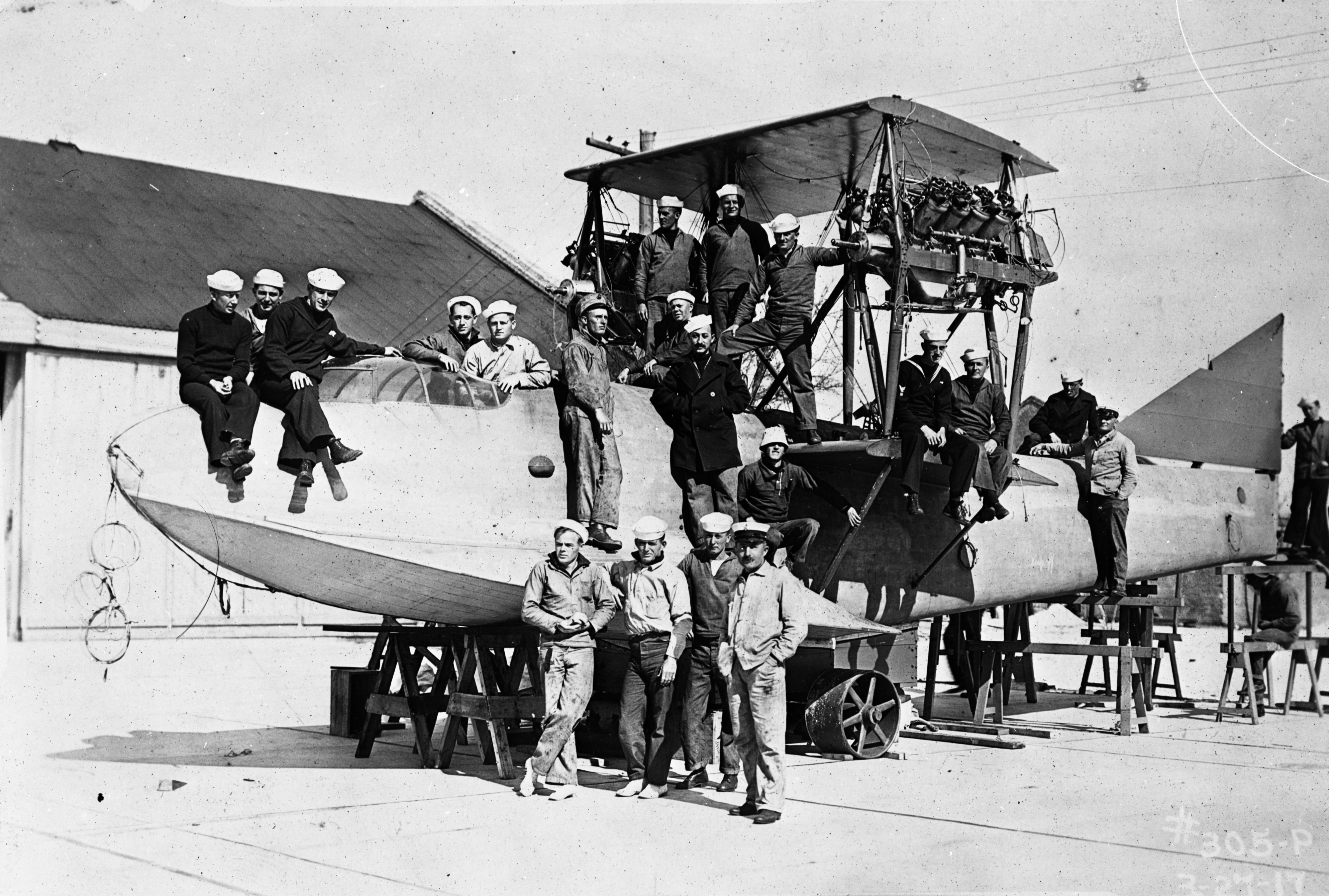Lincoln Letters
Ellen Call Long diary, fragments, 1864-1865 (Page 10 of 10)
Series: (M92-1) Box 12, Folder 1, Item 1
Lincoln Letters
Lincoln Letters

[New page] there was every demonstration of grief set forth in every emblem of woe. The streets were festooned with flags draped in crepe, and so at every rail way station, while his corpse was received by long processions of military and citizens in the cities and exposed to view for several hours, thousands and thousands passing the coffin continuously, taking a last look at the unfortunate man. Ladies were ready at every stopping place with the rarest and most beautiful flowers to decorate the funeral car and coffin so that as one wreath weathered, there were others to take its place. The funeral car prepared for the occasion is said to have been very magnificent, covered with velvet crepe and silver bullion. Abe, not for any thing he did in life, but because he happened to be killed by an ordinary man, supposed to be in league with the South. What creatures of circumstance we are after all, or “there is a Providence that shapes our ends, rough hew them as we will.” So the Rail splitting, Union splitting, joking President, is now called a Martyr and soon will be a saint, two of which the North has now, the other being “John Brown,” and I suppose if old Andy Johnson lives or dies they will make a God of him (after the order of Bacchus). [7]
[Same entry continues] The examination of Jeff Davis and others in Washington City as accomplices in Lincoln’s murder is going on but failing to implicate him in the murder. They have indicted himself and Mr. Stephens for high treason. [8]
Footnotes
[7] Ellen paraphrases Shakespeare in Act 5, Scene 2 of Hamlet: “There is a divinity that shapes our ends, Rough-hew them how we will.” Abolitionist John Brown led a failed attempt to begin a slave rebellion in the South when he and his supporters tried to seize the Federal armory at Harper’s Ferry, Virginia, in October 1859. Brown’s subsequent trial and execution made him a martyr in the North and a symbol of insurrection and terror in the South. Ellen’s comparison of President Andrew Johnson or “Andy Johnson” to Bacchus, the Roman god of wine, reflected a popular belief that Johnson was a drunk.
[8] Alexander Hamilton Stephens was the vice president of the Confederacy.

 Listen: The World Program
Listen: The World Program